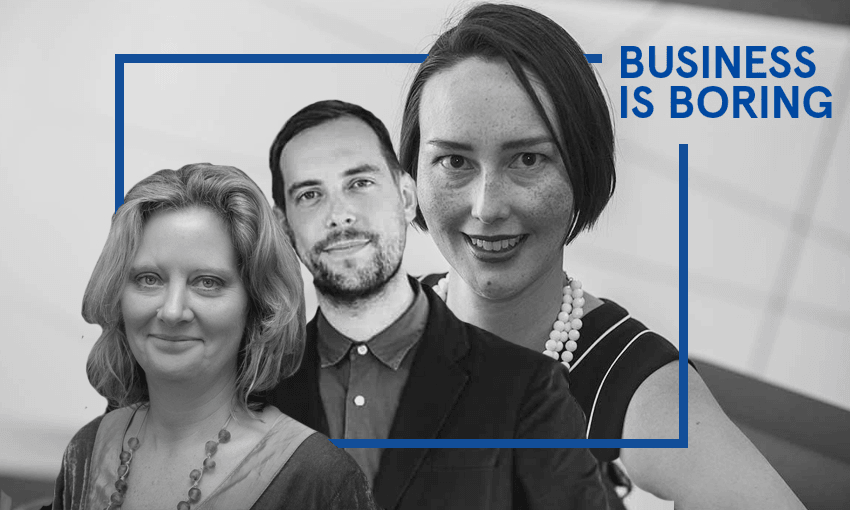Business is Boring is a weekly podcast series presented by The Spinoff in association with Callaghan Innovation. In our regular Business Chat special, Simon Pound speaks with Fleur Francois, director of New Zealand’s national metrology institute, and Karyn Scherer, senior copywriter at Callaghan Innovation.
It’s been a big year in international measurement. A number of the big measures we rely on every day, and for the accurate use of more things in our lives than you might imagine, have swapped out, or are in the process of doing so. The kilo is a famous measure, kept under glass and lock and key in France, that’s changing from an actual lump of metal to being kept by quantum measurements based off fundamental laws of physics so as not to change.
It turns out that up to now every now and again the kilo mass shifted and so would all measurements – kind of bananas to think of it.
It’s also been a big anniversary for another standard, standard time. Did you know – and I’m not trying to catch you out if you didn’t – that NZ was the first place in the world to adopt standard time, adopting Greenwich mean time as our base measure, even before England even did. It’s a great story of parochialism and vision all at once, and we were a staggering 15 years ahead of anywhere else. The 150th anniversary of that also happened this year. So to chat time, measure and the nature of reality, we’re joined on the pod by Fleur Francois, director at New Zealand’s national metrology institute, the Measurement Standards Laboratory (MSL), and Karyn Scherer of Callaghan Innovation.
Either download this episode (right click and save), have a listen below or via Spotify, subscribe through iTunes (RSS feed) or read on for a transcribed excerpt.
Simon: It does seem remarkably complicated – from the simplicity of a lump of metal to interrelationships between frequencies radiation at an atomic level?
Fleur: It’s a lot more stable and a lot more safer for the world than relying on some dodgy object in a vault that could be destroyed! And this is not hypothetical, in the 19th century the poor British lost their standard yard because there was a fire in parliament where it was stored. I have visions of this melted lump of metal.
You have just recently been to Paris where it has been going down. What was done to mark the end of the analogue era and is this a big year for the world of measuring things?
Fleur: It is a very big year for metrologist because we have cracked the last example of having to use a physical object as a measurement. We’ve finally reached a point where there are enough experiments that have been done around the world that we can set a value for Planck constant. Also at the same time we have moved from the analogue world to the more digital world for other measurements like the Kelvin scale in temperature – that will be based on another physical constant called the Boltzmann constant. We’ve also fixed the value for the elementary charge which is used to calculate the amp which is critical for electricity. The reason this matters is because new technology is going to enable a whole lot of other technology developments, whether it’s more accurate predictions about climate change from the improved temperature measurement or better electronic devices and longer lasting batteries through better electricity measurement.

